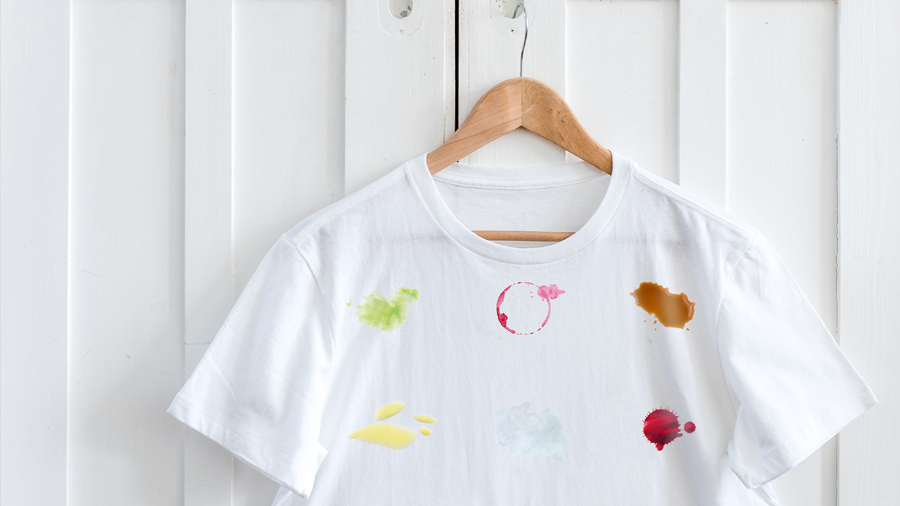Summer Cleaning Tips You Can Use At Home
Summer comes with a lot of difficult stains. The Drycleaning and Laundry Institute lets you know what method you should use at home and when you need to bring it into the professionals.
Bleaching:
Bleaching is a last resort if the stain does not respond to either dry-side or wetside measures. Ordinary three percent hydrogen peroxide bleach, available at grocery and drug stores, is the easiest to use. But test the bleach first on an unexposed seam or a sample of the material. Pour some bleach on the sample piece of fabric. Wait five minutes for a reaction. Many white fabrics contain an optical brightener that will turn yellow when bleached. Very bright-colored fabrics may contain optical brightening agents as well; a bleach may cause these colors to become dull.
Rust Stains:
Rust stains should be approached with great care. Rust removers are sold at grocery stores. Use them only on washable garments or fabrics so they can be laundered immediately afterward. Laundering will rinse out the rust remover. If it is not removed, it can burn the skin. Do not use a rust remover on any fabric containing metallic threads.
Tough Stains:
Some stains don’t lend themselves to home methods. Most medicine stains, fingernail polish, adhesives, and paint are difficult to remove and should be taken to a professional cleaner.
Don’t Wait:
All stains should be removed before they have time to set. Time or heat can set stains. Even a professional cleaner will have trouble getting the stain out if he or she doesn’t receive the garment soon after the stain occurred.
Delicate Fabrics:
Do not attempt home stain removal on leather, suede, furs, vinyl, fabrics that are heavily sized like taffeta and organdy, nets, satins, and those with colors that bleed easily.
Invisible Stains:
Many fruit juices and drinks disappear into the fabric and leave no visible stain, though the sugars are deposited there. Drycleaning fluid doesn’t dissolve them. Heat browns them causing a stain that doesn’t come out. If you spill juice or soda on a fabric, flush it out immediately with water – even though the stain is invisible. For more specific advice, ask us, we’re always happy to help.
Visit St Croix Cleaners for information on all of your dry cleaning needs.






